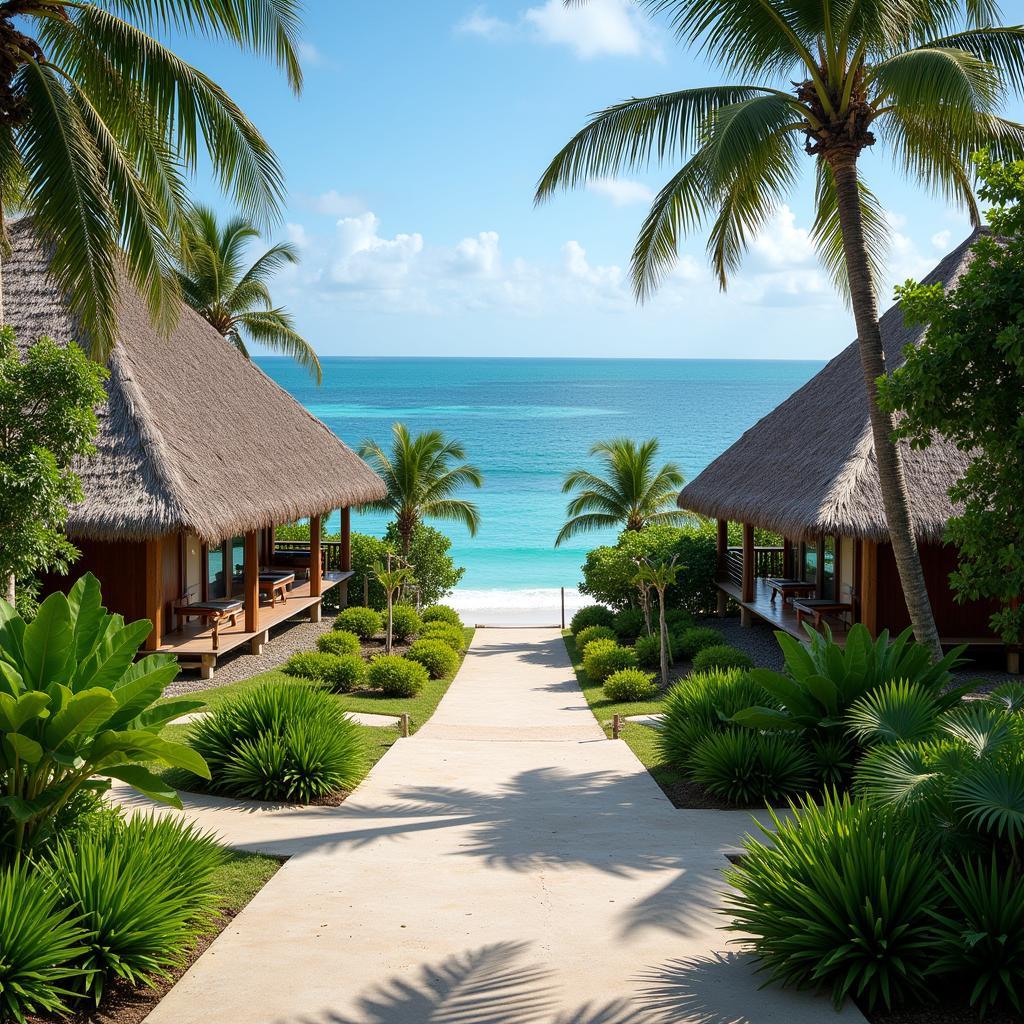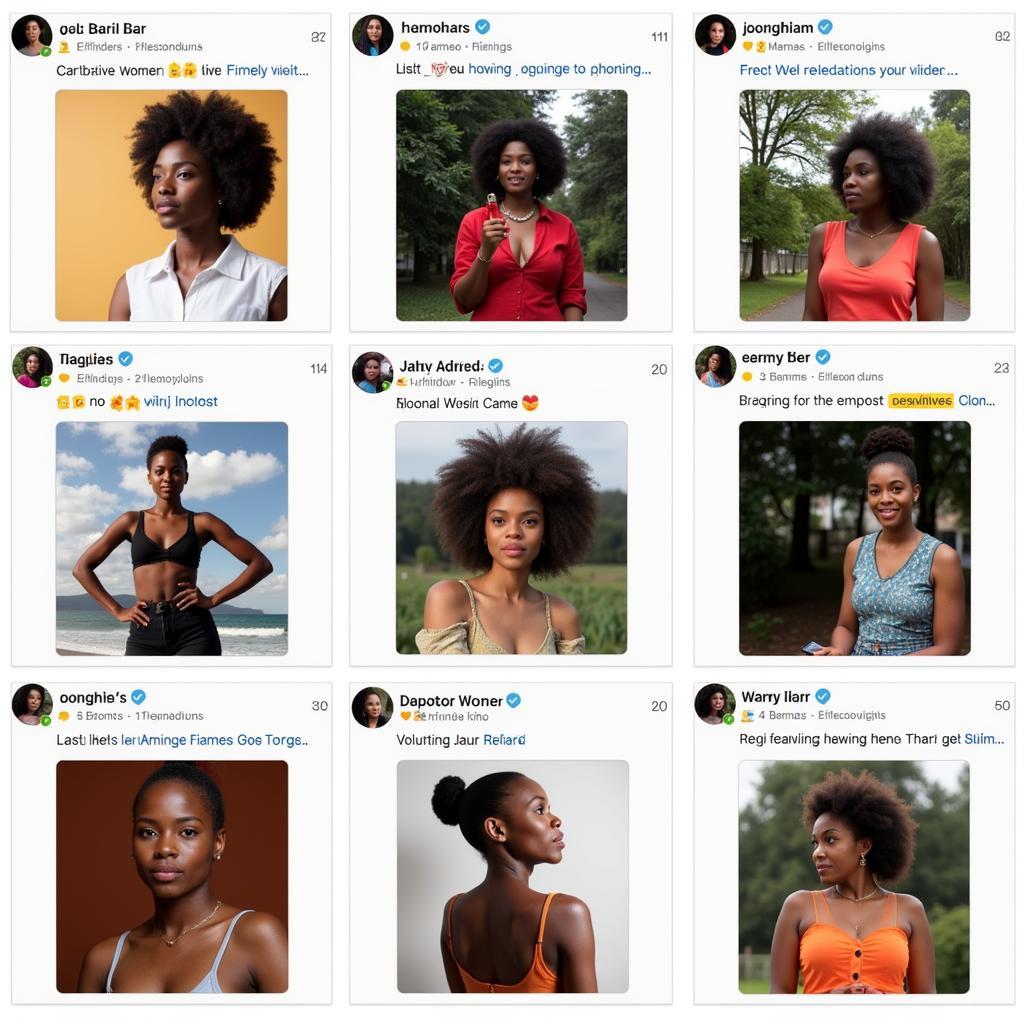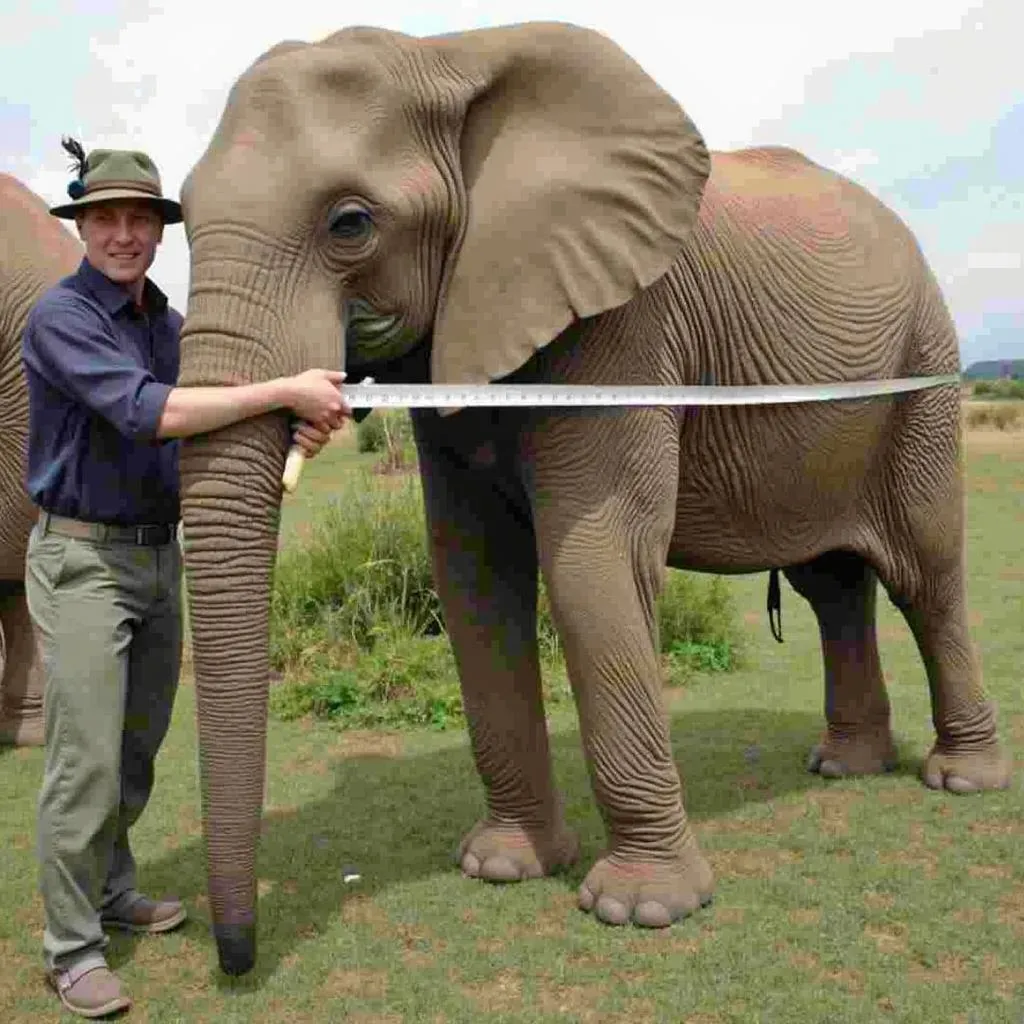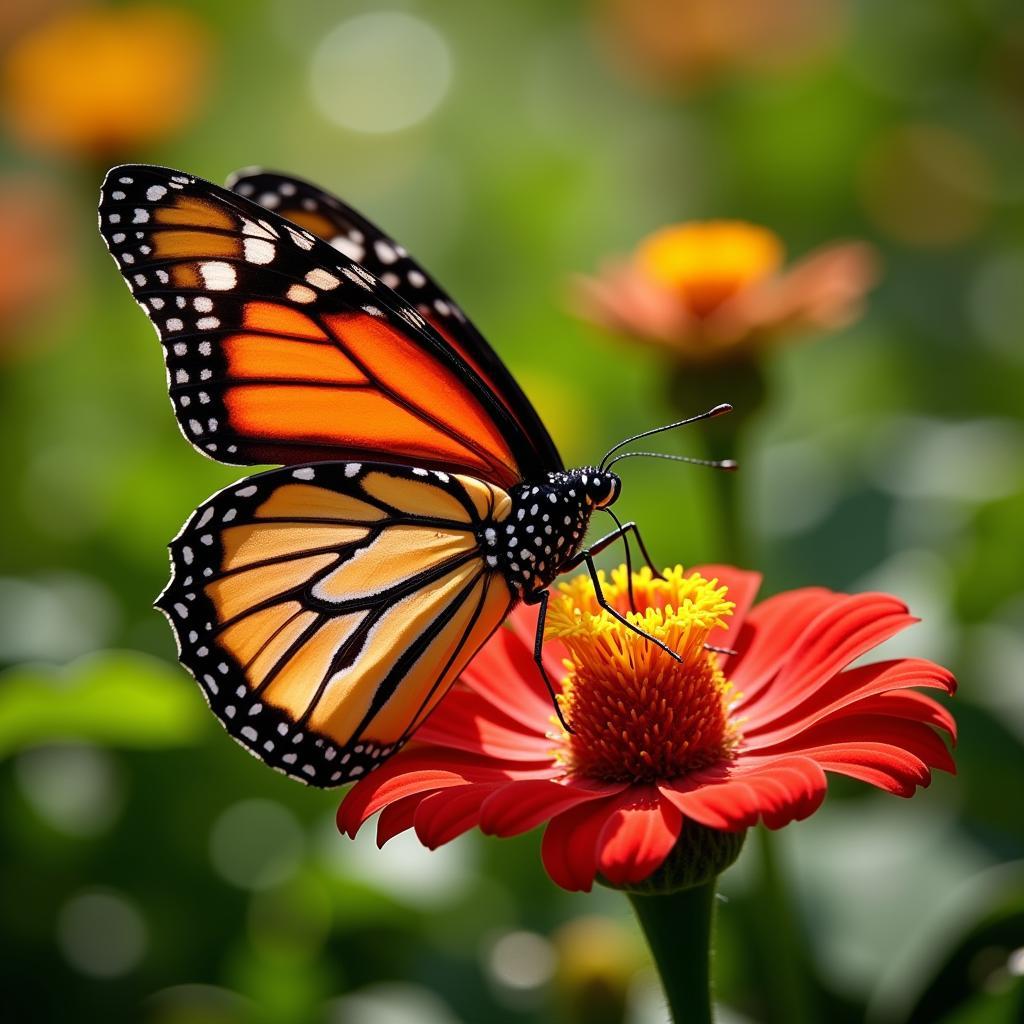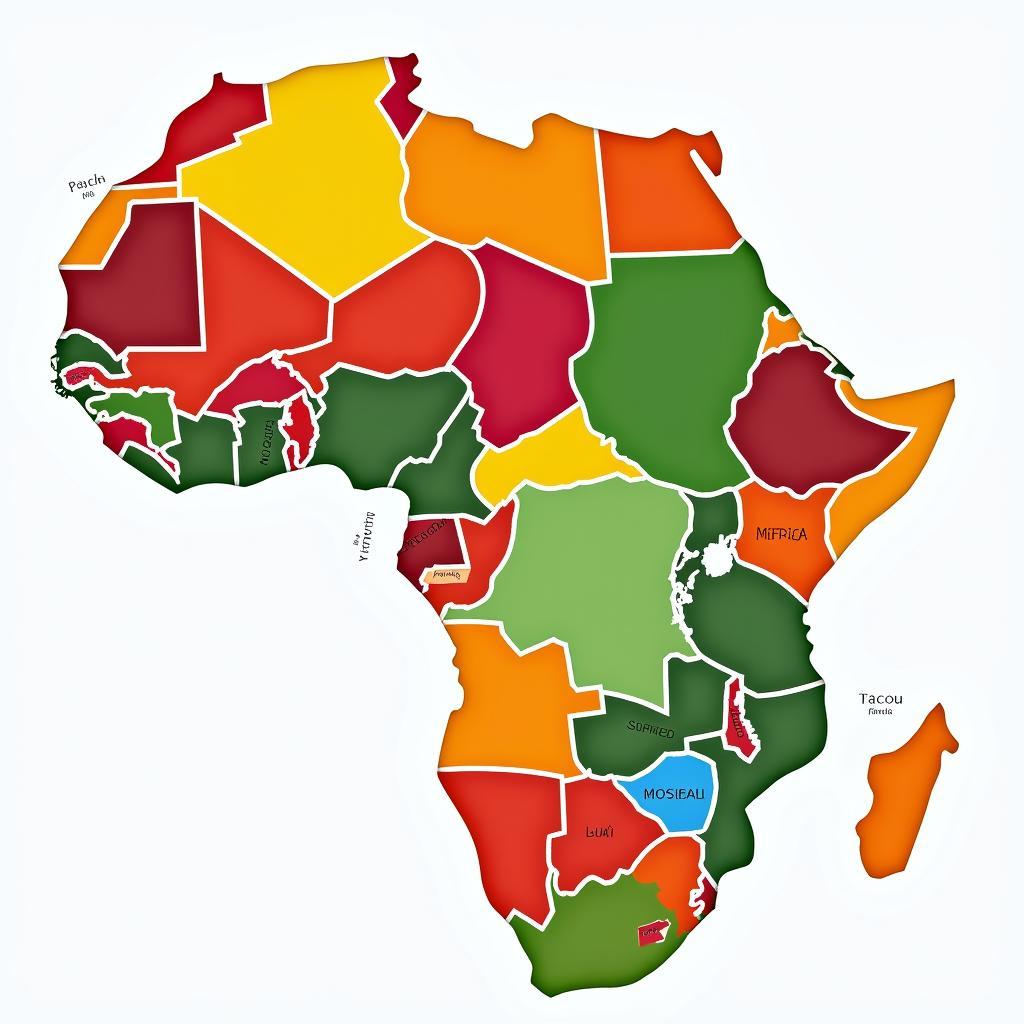Exploring the Vibrant World of African Fashion Essay
African fashion is a vibrant tapestry woven with threads of history, culture, and artistry. This essay delves into the rich and diverse world of African fashion, exploring its evolution, influences, and global impact. From traditional garments to contemporary designs, African fashion reflects the continent’s unique identity and creative spirit.
A Historical Journey Through African Fashion
African clothing styles have a long and fascinating history, deeply intertwined with the continent’s diverse cultures and traditions. For centuries, textiles and adornments have played a significant role in African societies, signifying social status, ethnicity, and spiritual beliefs. From the intricate beadwork of the Maasai to the vibrant kente cloth of Ghana, each region boasts its own distinctive style. These traditional garments are not merely pieces of clothing but rather powerful symbols of heritage and identity.
One key aspect of historical African fashion is the use of natural materials. Locally sourced fibers like cotton, raffia, and barkcloth were transformed into intricate fabrics, often adorned with natural dyes derived from plants and minerals. These techniques, passed down through generations, demonstrate a deep connection to the environment and a respect for sustainable practices. The vibrant colors and patterns often hold symbolic meaning, reflecting the beliefs and values of different communities. The influence of trade routes and cultural exchange can also be seen in the evolution of African fashion, with elements from other parts of the world being incorporated into existing designs.
For instance, the introduction of silk and other luxurious fabrics through trade with the East added new dimensions to African textiles. This fusion of local and foreign influences created unique hybrid styles that reflect the continent’s dynamic history. It’s important to understand this historical context to fully appreciate the depth and complexity of African fashion today. By learning about the traditions and techniques of the past, we can gain a deeper appreciation for the creativity and innovation that continues to drive African fashion forward.
The Modern Renaissance of African Fashion
Today, African fashion is experiencing a global renaissance, with designers across the continent pushing boundaries and captivating the world with their innovative creations. These designers draw inspiration from their rich cultural heritage while embracing modern aesthetics and techniques. They are reimagining traditional patterns and silhouettes, creating contemporary pieces that resonate with a global audience. This new wave of African fashion is not just about clothing; it’s about storytelling, empowering communities, and challenging preconceived notions. Designers are using their platforms to address social issues, promote sustainability, and celebrate African identity on a global stage.
African American culture essay showcases similar trends in fashion, highlighting the power of clothing to express identity and heritage. This revival is driven by a growing sense of pride in African identity and a desire to showcase the continent’s creativity and talent to the world. From high fashion runways to everyday streetwear, African prints and designs are becoming increasingly popular, influencing global trends and challenging Western dominance in the fashion industry.
What Influences Contemporary African Fashion?
Contemporary African fashion is a dynamic blend of tradition and modernity, shaped by a multitude of influences. Traditional techniques and motifs continue to play a vital role, providing a strong foundation for contemporary designs. However, these traditional elements are often reinterpreted and combined with modern aesthetics, creating a unique fusion of old and new. Global trends also play a significant role, with African designers incorporating international influences into their creations. This cross-cultural exchange leads to exciting new styles that blend African heritage with global sensibilities. African hot bikni women photo represents another aspect of African fashion embracing modernity.
Furthermore, social and political factors influence the direction of African fashion. Designers often use their work to express social commentary, address issues of identity, and promote positive change. This socially conscious approach adds another layer of meaning and depth to African fashion, making it more than just clothing but a powerful tool for expression and empowerment. The use of sustainable materials and ethical production practices is also becoming increasingly important, reflecting a growing awareness of environmental and social responsibility within the industry.
African Fashion: A Global Force
African fashion is no longer confined to the continent; it has become a global force, influencing trends and inspiring designers worldwide. The vibrant colors, bold prints, and unique silhouettes of African fashion have captured the attention of the international fashion scene. African American non fiction often explores these themes of cultural exchange and influence in greater detail. Increasingly, African designers are showcasing their collections on international runways, gaining recognition for their creativity and innovation. African black ladies in bikini demonstrate the global appeal of African aesthetics.
This global recognition is not only a testament to the talent of African designers but also a reflection of the growing appreciation for diverse cultural expressions. As African fashion continues to evolve and gain global prominence, it is also empowering local communities and contributing to economic growth. The fashion industry in Africa is creating jobs, supporting local artisans, and promoting sustainable development. By embracing its rich heritage and adapting to global trends, African fashion is poised to continue its ascent as a major force in the international fashion world.
Conclusion
African fashion, in its vibrant and ever-evolving forms, tells a powerful story of heritage, creativity, and global influence. From ancient traditions to contemporary designs, African fashion continues to captivate and inspire. This essay has only scratched the surface of this rich and complex topic. Exploring African fashion is a journey of discovery, revealing the dynamic interplay of culture, art, and identity.
FAQ
-
What are some popular African fabrics?
Some popular African fabrics include kente, Ankara, aso oke, and mud cloth. -
Who are some prominent African fashion designers?
Some prominent African fashion designers include Maki Oh, Lisa Folawiyo, and Kenneth Ize. -
How is African fashion sustainable?
Many African designers prioritize using locally sourced materials and traditional techniques, promoting sustainable practices. -
Where can I buy African fashion?
You can buy African fashion online, in boutiques specializing in African designs, and directly from designers. -
How can I incorporate African fashion into my wardrobe?
You can incorporate African fashion into your wardrobe by adding accessories like headwraps or jewelry, or by choosing garments with African prints or silhouettes. -
What is the significance of African fashion?
African fashion holds deep cultural significance, reflecting history, identity, and social values. -
How is technology influencing African fashion?
Technology is influencing African fashion through e-commerce platforms, digital design tools, and social media marketing.
More questions you may have about African Fashion:
- How can I learn more about specific African fashion traditions?
- What is the future of African fashion on the global stage?
- How does African fashion address issues of sustainability and ethical production?
- Are there specific African fashion trends emerging for the upcoming season?
- What are some resources for researching African fashion designers and their work?
For further reading, explore more articles on our website related to African fashion, culture and art.
When you need assistance, please contact us at Phone Number: +255768904061, Email: [email protected] Or visit our address: Mbarali DC Mawindi, Kangaga, Tanzania. We have a 24/7 customer service team.
